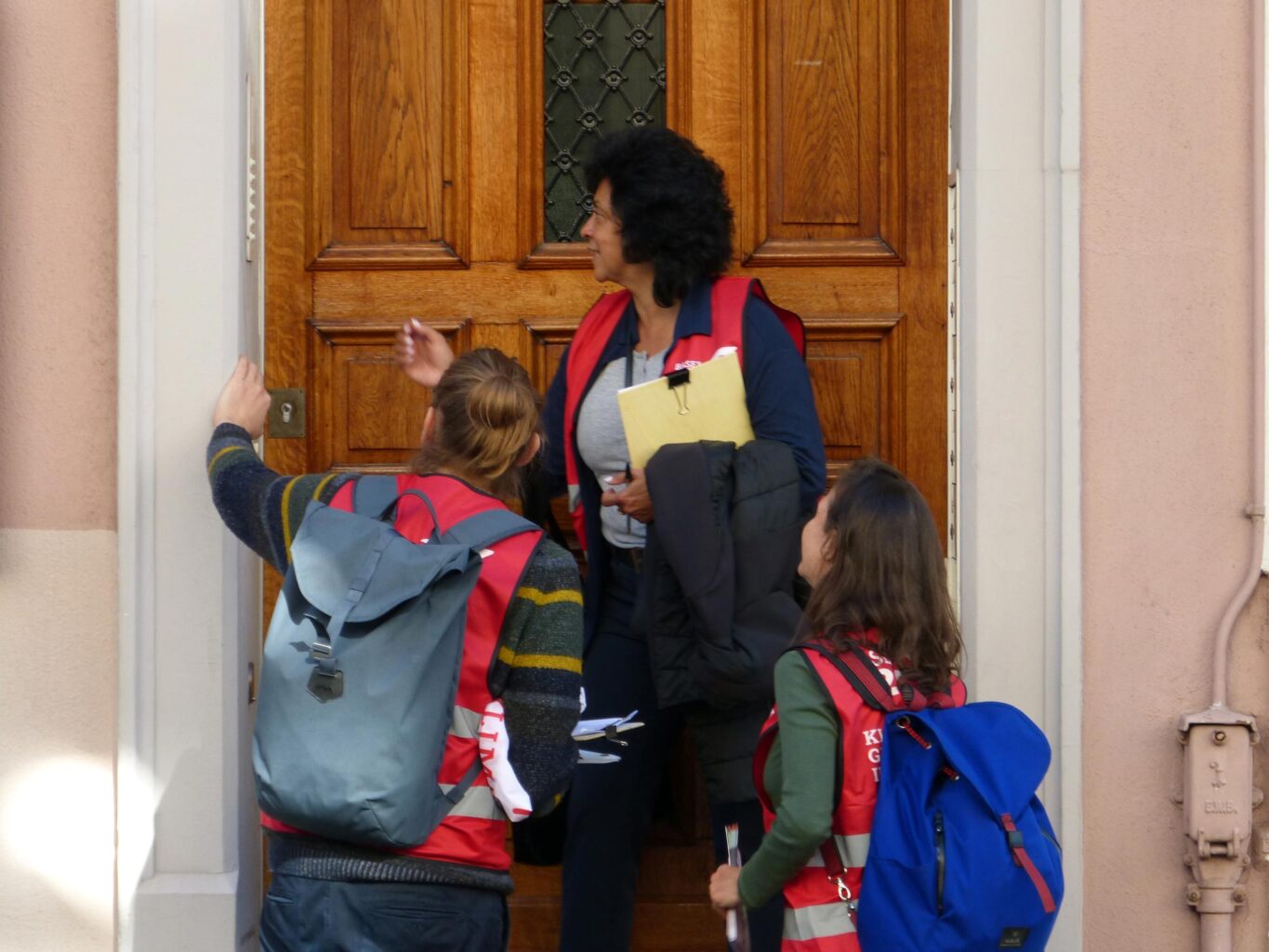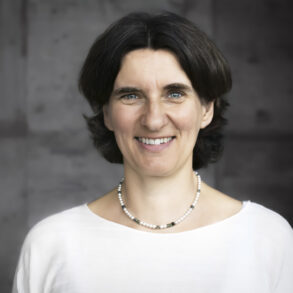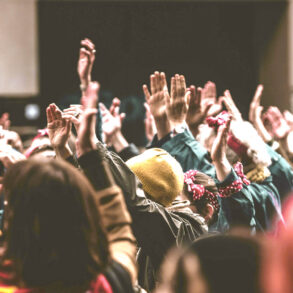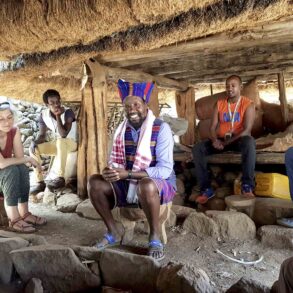This November, the canton of Basel-Stadt had a vote as to whether they will become Swiss pioneers in going completely climate-neutral as early as 2030. The ‹Basel 2030› initiative stipulates a change in the constitution. We spoke with press spokesperson Agnes Jezler, cultural scientist and initiative committee member Silvia Henke, and Salome Fonseca, founding committee member. Elena Borer conducted the interview.
Elena Borer: The idea for this initiative arose from joint dinners, the so-called KlimaZnachts, three and a half years ago. Most of us talk about the climate crisis from time to time at meals together. However, most of the talks do not result in direct democratic steps. What was different with you?
Agnes Jezler: The idea for the KlimaZnachts actually resulted from a circle of friends. We then realized that it’s always the same people, so we started inviting more friends who were interested in eating together once a month. In the beginning, it was pretty informal in private living rooms.
Salome Fonseca: Right from the beginning, a power was noticeable in the group. I was particularly touched by the great interest of those present, the openness to new people, and the precision of the questions. During the first lockdown in 2020, we began to talk more specifically about a popular initiative that eventually took shape. The online meetings seemed to me to contribute to a concentration that fueled the project.
Jezler: Later, an empathy circle was formed in which we regularly talked about how we feel personally. We need to feel, explore, express, and be heard to connect with the world. To hear yourself speak, to experience the resonance that your voice meets someone who records it is fundamental to feeling at home in ourselves and the world.

Creating Networks through Empathy
Borer: How is the campaign organized?
Jezler: For true climate justice, we need much stronger relationships in the neighborhoods, so we wanted to rely on a form of mobilization based on listening. We have established relatively independent local groups in the various districts, which will outlast the initiative. With the local groups, we take to the streets and front doors and want to invite our neighbors to help shape the future.
Borer: What did you learn in the conversations?
Fonseca: People are happy to have personal conversations, even at the front door. Most are flooded with emails, social media, and online messages. Amazingly, very few people reject conversation. It’s different than before. Perhaps the Covid pandemic has somehow contributed to the realization that the protection, security, and prosperity of people and nature cannot be taken for granted. There has been an awareness of the crisis and, at the same time, greater openness.
Borer: How are the ecological and social climates related?
Silvia Henke: The purchase of affordable vegetables, for example, must no longer be paid for with pesticides that cause insect and bird species, among other things, to become extinct. The insects and birds are just as important as the vegetables. Bruno Latour’s category of the «terrestrial» is interesting in this respect because he understands «the terrestrial,» the non-human nature, as an actor with whom we should work and could do it well, rather than against it.

Providing Your Own Answer
Borer: How did you personally wake up to the climate crisis? Was there a decisive moment?
Henke: The 2015 Paris climate summit and America’s refusal to sign the convention. Then I realized how much depends on the issue of renewable energies and how gigantic the oil and gas lobby is, which undermines the ecological climate goals. Add to that the idea of how many areas near the sea are doomed to death in the next 100 to 200 years – that makes me very sad.
Fonseca: For me, it was an illness. From one hour to the next, I got such severe pain in my legs that I could hardly walk. Then I started to change my life. This change has shown me that change is possible. It has made me more aware and grateful.
Jezler: For me, the occupation of the Bundesplatz in September two years ago was a critical moment. For the first time, a wide variety of groups gathered there and demanded more ambitious climate targets in Switzerland. There I became profoundly aware of what we would have to do, but also how competent the movement is and how much we can do.
Borer: What gives you strength and motivates you to take responsibility?
Fonseca: Music – I grew up with a lot of music. It inspires me and gives me hope.
Jezler: I always thought that political responsibility was a burden. But it’s the opposite. Being engaged is what gives me strength and hope.
Henke: There is a lot of right climate action in the wrong or inadequate climate regime. There are micro-utopias – ‹Now-topias›. I believe in that.
About the vote: In response to the ambitious 2030 goal, the Cantonal government created a counterproposal to reduce emissions to zero by 2037, which was successfully backed by 64% of voters. More: https://www.swissinfo.ch/eng/politics/canton-basel-city-approves–ambitious–climate-goal/48090438
Translation: Monika Werner













